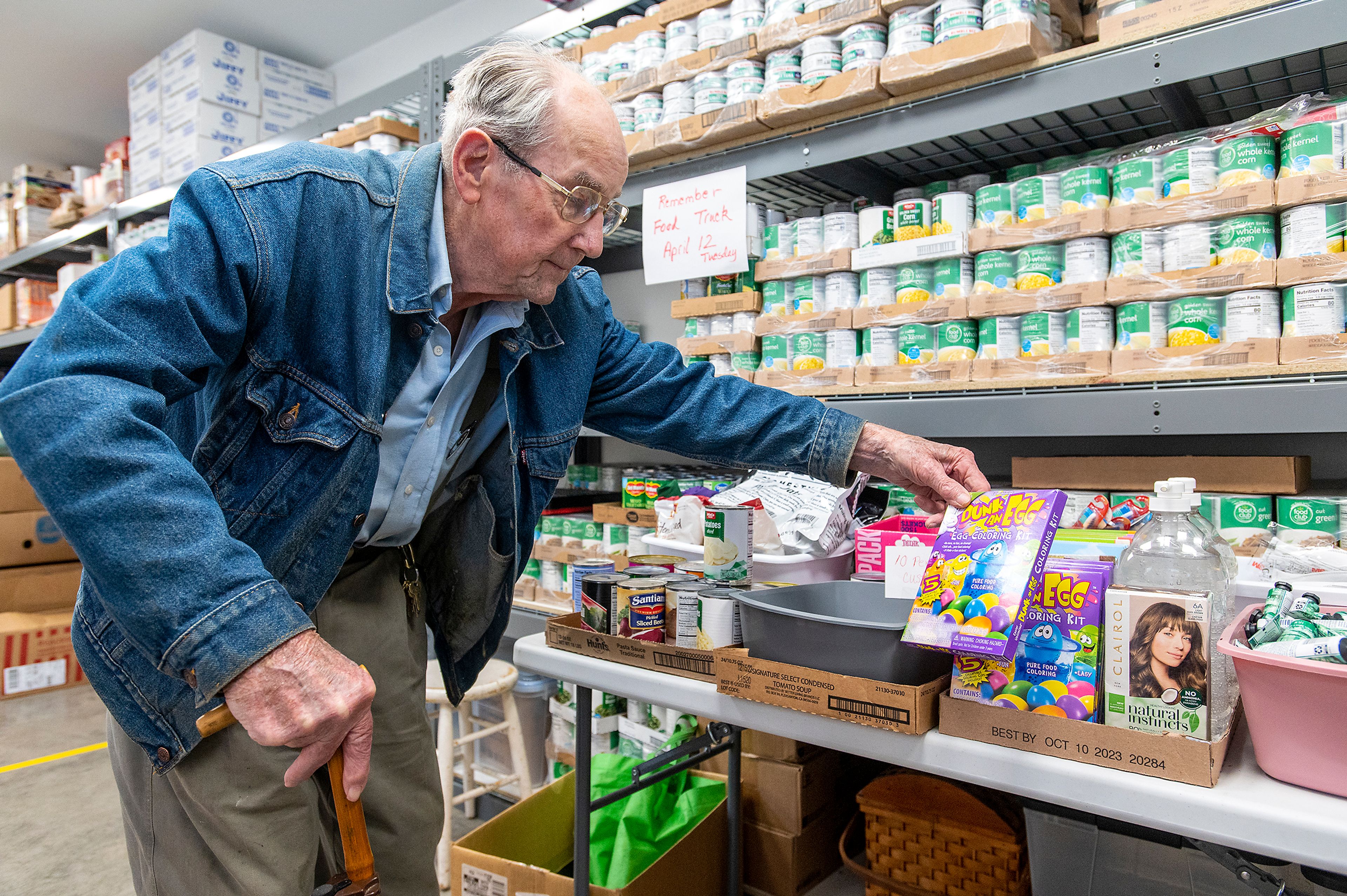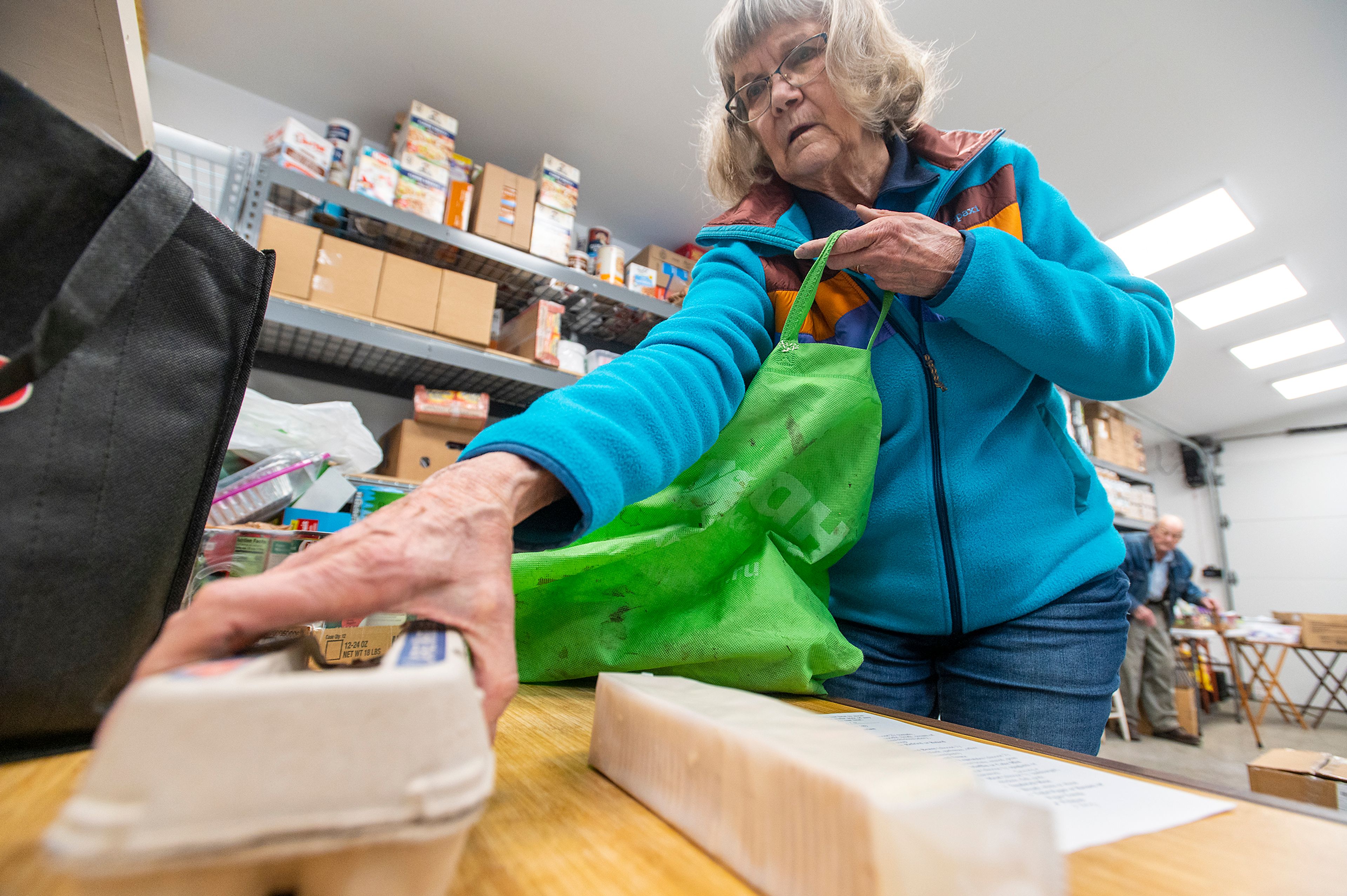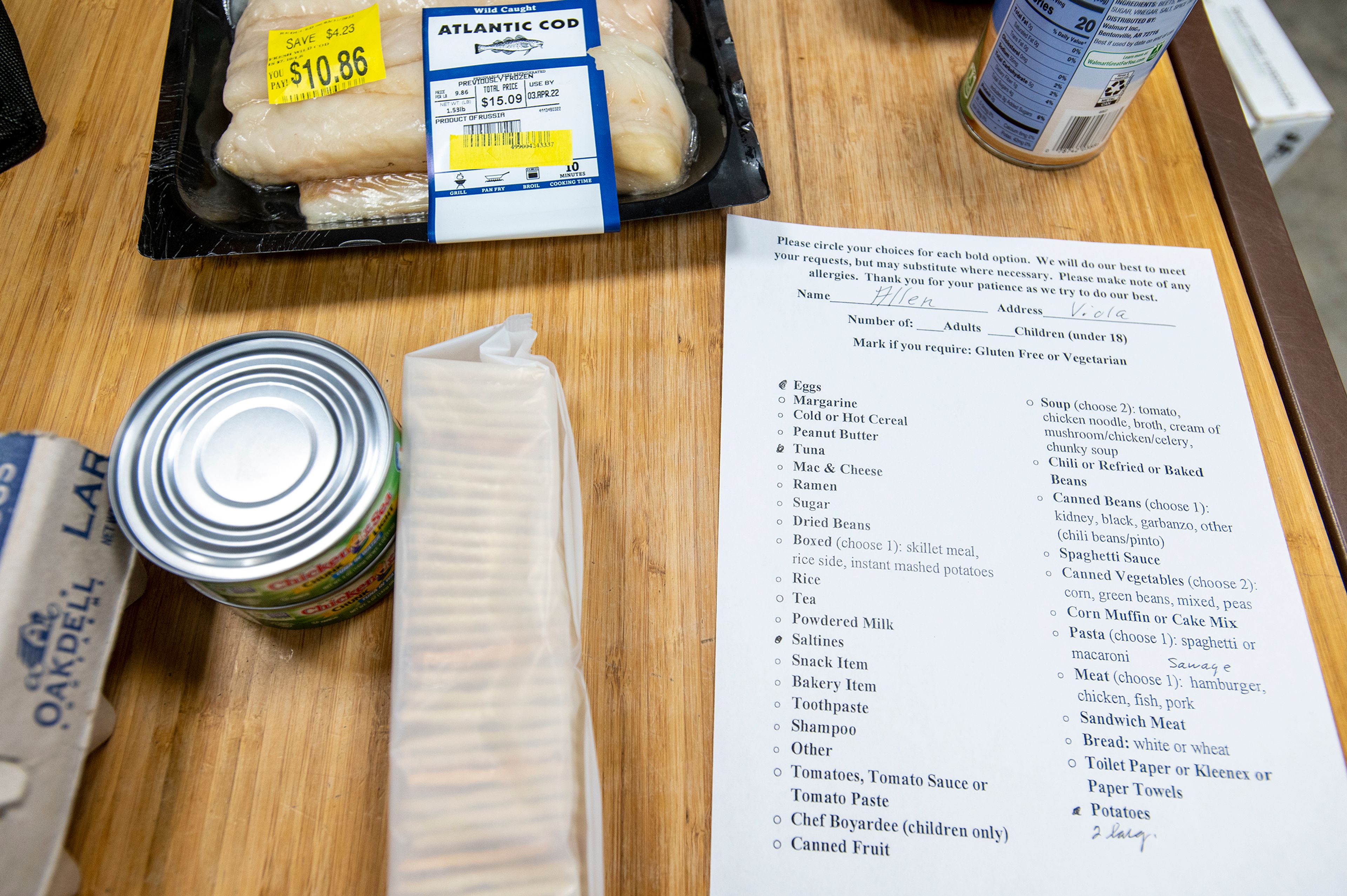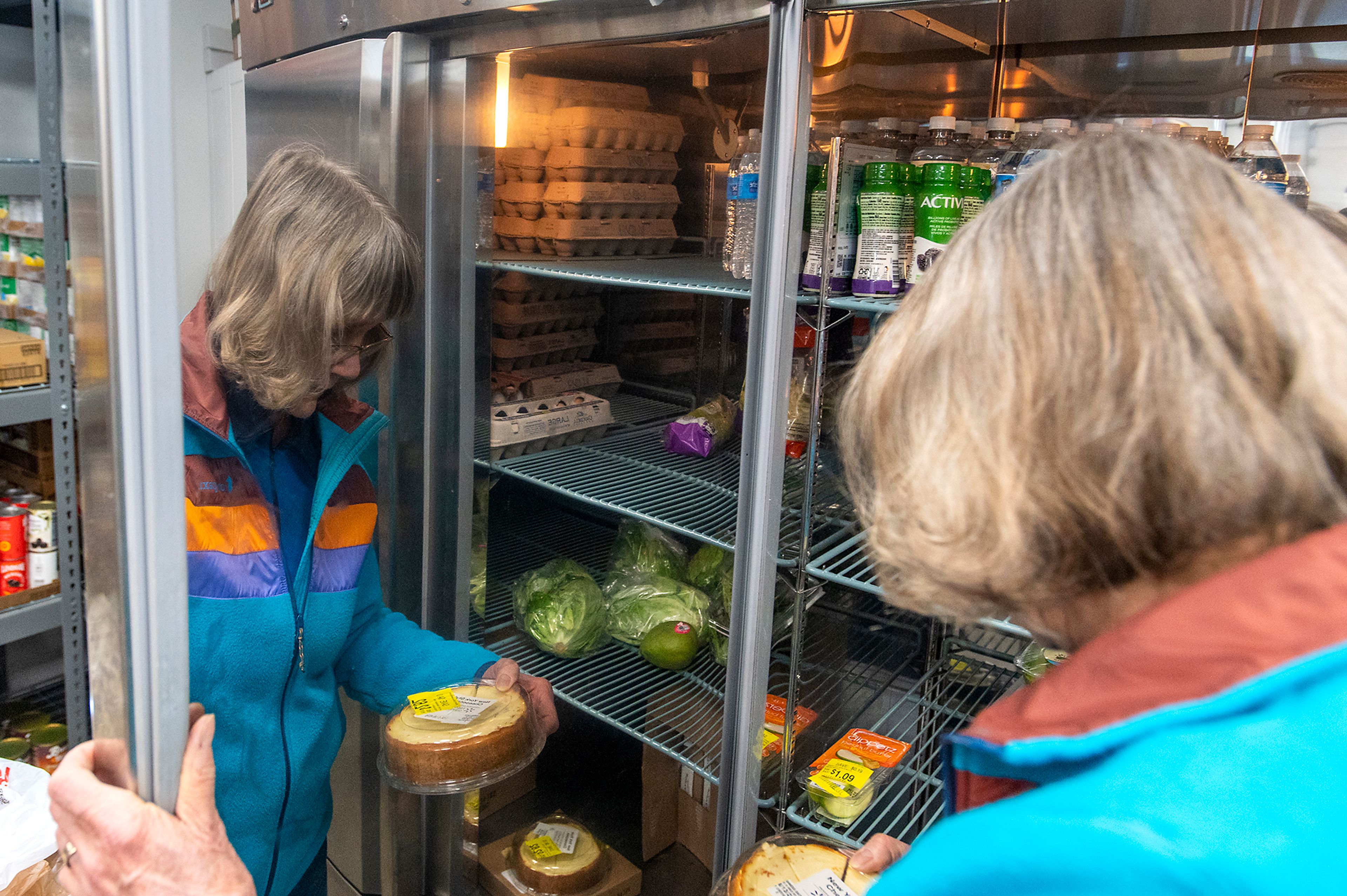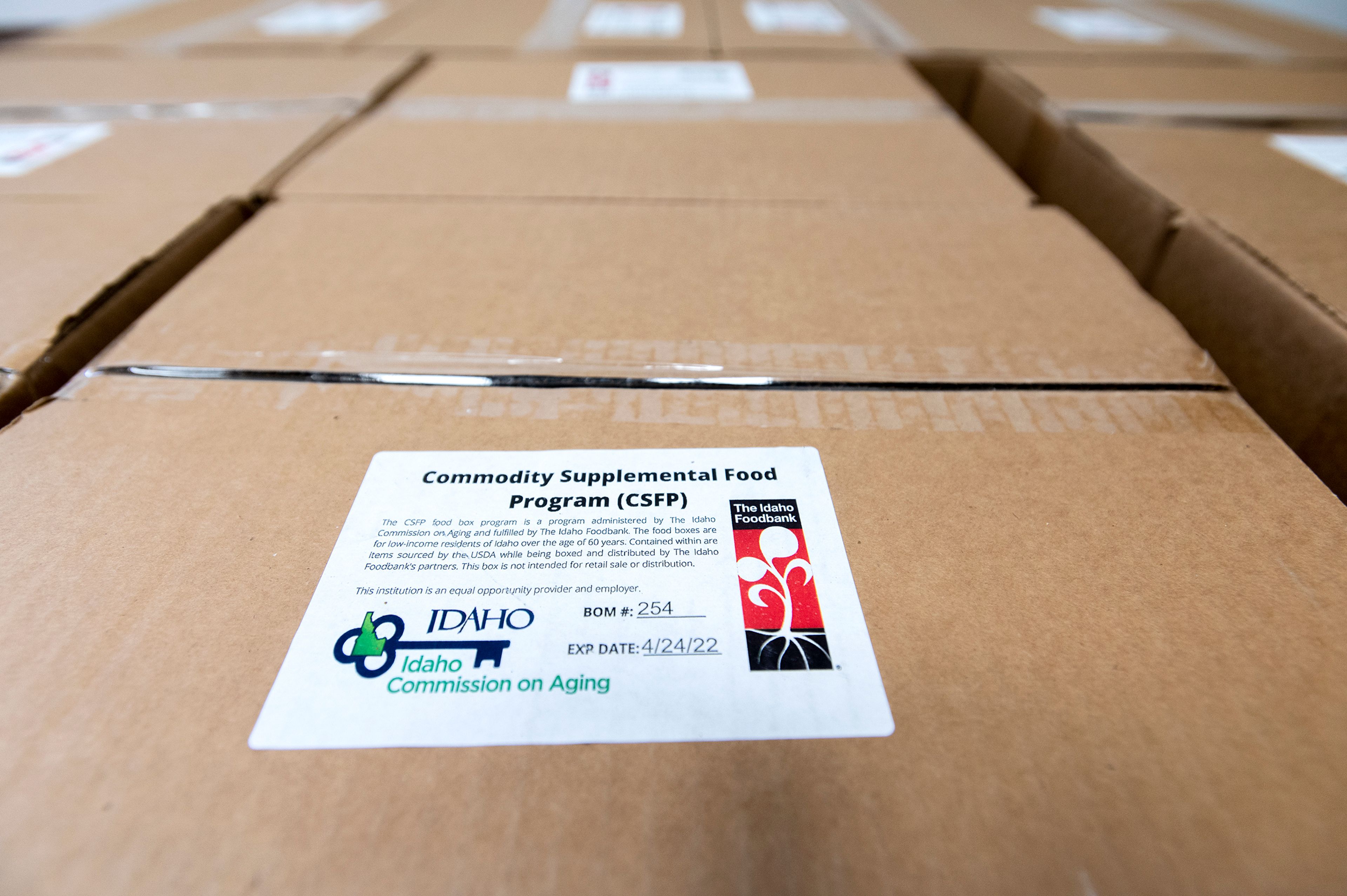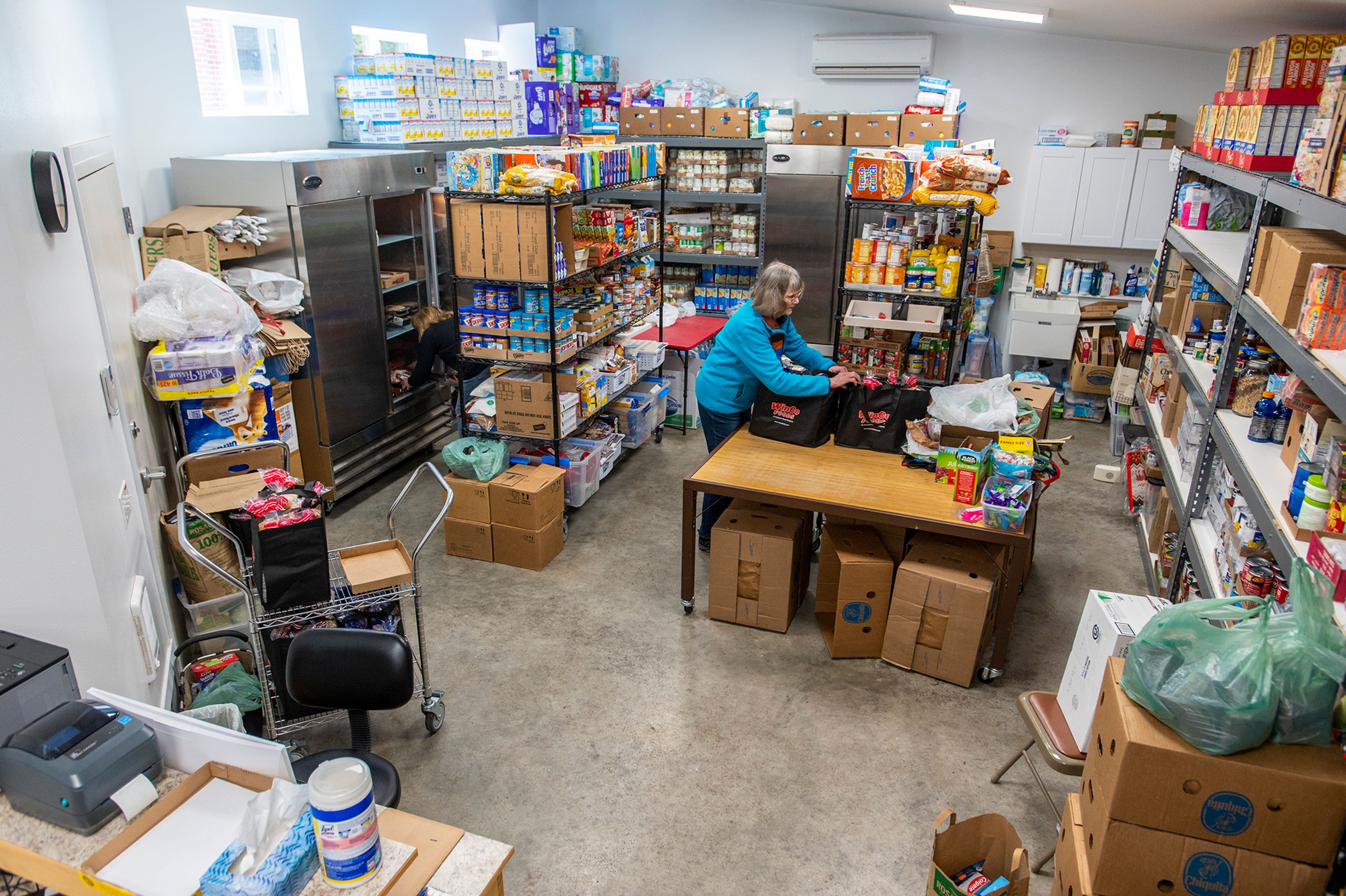Rising prices felt at local food banks
Inflation has driven more people to seek donated food in Moscow and Pullman
Local food banks have seen an increase in the amount of people who need their services in recent weeks because of higher prices at the gas pump and everywhere else.
Carrie Chase, the community food manager at the Community Action Center in Pullman, wrote in an email to the Daily News that the CAC’s food bank served 824 people in March. This is an increase from the 614 people it served in March 2021.
She said people point to the combination of higher rent, increased food costs and rising gas prices as the reasons why they need the food bank more than ever. It is also straining the food banks themselves as they try to keep their shelves stocked.
“We are seeing partner agencies asking for help to keep them supplied as they are seeing an increase in need or wants and have been unable to keep up with the increased costs of supplies to do this,” Chase wrote.
The CAC recently helped rural food banks in Whitman County as well as the Washington State University Cougar Food Pantry and Pullman Schools Pantry, Chase wrote, adding that everything is more expensive, particularly items that contain protein such as canned meats and soups.
Moscow Food Bank Director Linda Nickels, who has worked at the food bank for nearly 30 years, has seen this before.
“A few years back, gas went up really high and we noticed a big increase,” she said “It’s just something that hits someone’s budget who’s on a limited income that they can’t handle.”
She said people have to spend more of their income on expenses like rent and gas. Their wages are not going up, so their food budget suffers as a result.
“Most of the people do work but they are in jobs that are not full-time or maybe don’t have benefits or that kind of thing,” Nickels said.
The people they serve come from a wide array of demographics. She’s helped single people, families and elderly people. She estimates the food bank served between 2,000 to 3,000 people in March.
When the COVID-19 pandemic began, the number of people who came to the food bank dwindled because their food stamps increased and gas prices were low, Nickels said. Last summer, she began seeing that number rise back to normal and this spring has been slightly higher than normal.
Nickels said she uses donated money to buy the perishable items like dairy, eggs and bread. She has also felt the higher cost of food, but has been able to keep the food bank well stocked.
Both Nickels and Chase encouraged people to donate. Chase called the local community “amazing” for donating food, time and money.
“We could not be able to service the people we do without (the community),” Chase wrote. “Continued support is needed for us to serve the increasing needs of our families and communities.”
Kuipers can be reached at akuipers@dnews.com.
